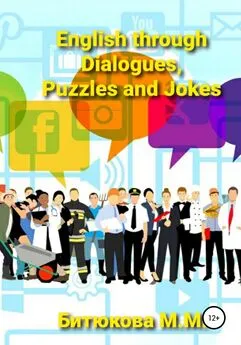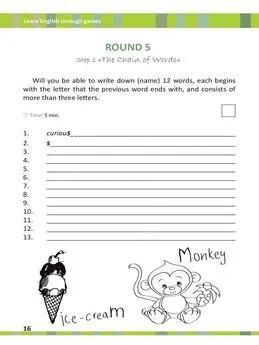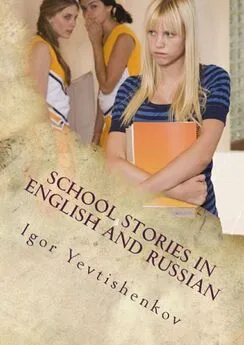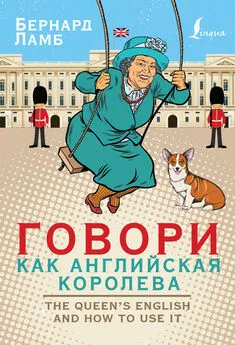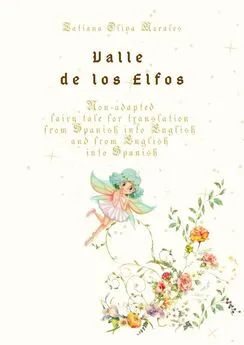М. Битюкова - English through Dialogues, Puzzles and Jokes
- Название:English through Dialogues, Puzzles and Jokes
- Автор:
- Жанр:
- Издательство:неизвестно
- Год:2021
- ISBN:нет данных
- Рейтинг:
- Избранное:Добавить в избранное
-
Отзывы:
-
Ваша оценка:
М. Битюкова - English through Dialogues, Puzzles and Jokes краткое содержание
English through Dialogues, Puzzles and Jokes - читать онлайн бесплатно ознакомительный отрывок
Интервал:
Закладка:
– Do you really think that we are what we eat?
– How does food influence on our character? Give examples.
Part Five. Food Chat
Two chefs, Evelyn Winters, a British chef, and Monsieur Leblanc, a French chef, are having a hot discussion where the best food in the world comes from. Read it and answer the questions:
1. Have you ever tried British/French food?
2. What is your opinion about them?
ML: Well, I know this is going to upset you, my dear friend, but frankly speaking, French food is the best in the world. For a start we have vichyssoise. It is the best soup in the world.
EW: The best soup? It’s just cold soup. You couldn’t be bothered to heat it up. We have tomato soup.
ML: OK, but we have the great French baguette.
EW: A thin bit of bread! Rip-off! What about a good old loaf?
ML: And, for example, our coffee is some of the best in the world. “Cafe au lait” is the best thing to wake you up in the morning.
EW: Yeah, with a stupid machine. Instant coffee is easier and quicker, and tastes just as good.
ML: OK, and “pommes frites”. You don’t get better “pommes frites” in the whole world.
EW: Yeah, that’s just chips with a fancy name. And anyway we invented them. First mentioned in Charles Dickens’ book ‘A Tale of Two Cities’.
ML: And we have great dishes like “pies e pacquets”.
EW: Lamb’s feet and tripe in a vomit sauce! Yuck!
ML: How dare you! It’s our national delicacy, and our “cuisses de grenouilles”. Where do you find a dish like this?
EW: Frog legs. That’s disgusting!
ML: OK, and what about our “coq au vin”? What have you got to say about “coq au vin”?
EW: Chicken in a wine sauce. Roast chicken and a pint of beer? Can’t get better than that, can you?
ML: OK, and our internationally famous “quiche lorraine”. What have you got to say about that, mister?
EW: What do you mean, “mister”? Madame!
ML: Sorry, I thought you had changed sex.
EW: Egg with pastry and a bit of bacon. Mmm… If we want bacon and eggs, we have our breakfast.
ML: I refuse to listen to this rubbish any more. French food is the best in the world, and you cannot say anything that will make me change my opinion.
EW: Yeah, the only one saying that is you, because everyone knows that British food is the best.
Vocabulary
To upset – to make angry or sad
Vichyssoise – a type of soup made from leeks (a long, green vegetable)
Couldn’t be bothered – if you “couldn’t be bothered” to do something, you are too tired to do that thing
To heat up – to make food warm/hot
A rip-off – a trick; something that deceives you
A loaf – a rectangular piece of bread
Instant coffee – coffee grains that you use to make coffee. You just add boiling water
Pommes frites – literally, fried pieces of potato; “chips”, in British English
Fancy – expensive and elaborate in the negative sense
Tripe – an animal’s stomach
How dare you! – this is an expression of anger. It is used when someone has been disrespectful to you
A national delicacy – a plate of food that is considered representative of a country
Pastry – food made from flour, fat and water. It is then cooked in the oven
To refuse – to say that you will not do something
Rubbish – an expression used to refer to something that you think is untrue or ridiculous
Discuss in small groups of 3-4 students. Then give your resolution to the whole class.
– What cuisine do you prefer? Do you have any special likes in this cuisine? How often do you eat dishes of this cuisine? Do you cook them yourself or do you order them in the restaurants?
– Do you like restaurant food? Do you have favourite restaurants? How often do you go there? Is it expensive? What do you usually order there? Would you recommend it to your friends?
Part Six. Jokes
1. Tom: I eaten seven hamburgers for breakfast.
Teacher: Ate, Tom! Ate.
Tom: No, Miss, seven. There were eight on the plate but I couldn’t manage the last one.
2. Mother: How was your cookery lesson?
Daughter: Awful. I was sent out of the class because I burnt something.
Mother: That wasn’t very fair. What did you burn?
Daughter: The classroom.
3. Teacher: Are you chewing gum?
Pupil: No, I’m Andrew Brown.
4. A clever butcher
A Norfolk butcher was famous for his rabbit pies, which he used to bake himself. As time went by, however, customers started to complain that his pies weren’t quite as nice as they used to be. One day a friend said:
– Frank, what happened to your rabbit pies?
– Why?
– They don’t taste as good as they used to.
– Well between you and me, – said the butcher, – my pies have been in such great demand that there aren’t enough rabbits to go round.
– So what do you do?
– I mix in a bit of horse meat.
– Horse meat! – exclaimed the friend. – How much horse meat do you put in?
– About fifty-fifty, – replied the butcher.
– What do you mean fifty-fifty?
– One horse to one rabbit.
Vocabulary
To manage – справиться
Cookery lesson – урок кулинарии
Fair – справедливый
To chew – жевать (chewing gum – жевательная резинка)
Butcher – мясник
Pie – пирог
Customer – покупатель, клиент
To complain – жаловаться
To be in great demand – пользоваться большим спросом
To mix in – подмешивать, мешать с
Part Seven. Revision Game

Throw the dice and answer the questions:
1. Name an exotic dish.
2. What is a healthy diet?
3. Your receipt of a meat sarnie.
4. Who is veggie?
5. Do you like pastry?
6. Who is sweet-tooth?
7. What is your favourite dessert?
8. What is “cuisses de grenouilles”
9. What is the most delicious food you’ve ever eaten?
10. Fancy a tripe?
11. Which do you prefer in the morning: tea or coffee?
12. Name 3 ingredients of your favourite dish.
13. Characterize Charlie Chilli.
14. What did you have for brekkie today?
15. What is the national delicacy of your country?
16. What’s the difference between kitchen and cuisine?
17. What is the worst dish you’ve ever eaten?
18. Which do you prefer for lunch: meat or fish?
19. What is a balanced diet?
20. Characterize Picky Polly.
21. Fancy pommes frites?
22. What is vichyssoise made from?
23. Name professions connected with food.
24. What are alternatives to meat for veggies?
25. What is “cafe au lait”?
26. Are you Hungry Harry?
27. Do you like hot, spicy food?
28. What food can’t you stand?
29. What are you going to have for supper?
30. Are you keen on food?
Answers to the Healthy Eating Test:
1. The correct answer is b. Once a month (sometimes twice) should be okay. A lot of fast food restaurants offer healthier choices. Try a fruit juice instead of a fizzy drink or a salad instead of a burger.
2. The correct answer is a. All salad leaves and vegetables themselves are low in fat but some salad dressings can be high in calories.
3. The correct answer is a. Do you remember the Russian proverb ‘Eat breakfast alone…’? Eating breakfast is the perfect way to start your day. Without breakfast you’ll feel tired and sleepy.
4. The correct answer is b. But it doesn’t have to be just water. Fruit juice, milk and tea count, too. So do fizzy drinks – but make sure you don’t drink these too often.
5. The correct answer is c. Healthy snacks such as fresh fruit or vegetables are good for you. Besides, such snacks can also help to prevent you from overeating at your next meal.
6. The correct answer is b. Doctors say that we should eat fish twice a week.
7. The correct answer is b. It has been proven that all vegetables – whether they are fresh, frozen or even canned – are good for you.
8. The correct answer is b. It’s a myth that eating starchy foods like pasta and bread is bad.
9. All above (d) is the correct answer!
10. The correct answer is b.
Character analysis
Chilli eaters are brave and adventurous; they like to shock, but they get bored and restless very easily.
Sweet-eaters are easy-going and sociable but they lack confidence. They are kind and sympathetic but not always reliable.
Hungry eaters are hard-working and generous; they aren’t ambitious and hate changes of any sort. They worry about the future.
Picky eaters are artistic and sensitive but they lose their tempers easily. They set themselves very high standards and don’t like to fail.
Unit 2. It’s all about… Love.
Part One. Love Test
Answer the questions (honestly!) and then read the explanations.
1. You are walking to your boy/girlfriend’s house. There are two roads to get there. One is straight path to take you there quickly, but is very boring. The other is much longer but is full of wonderful sights and interesting things. Which one do you take to get to your boy/girlfriend’s house, short or long?
2. On the way you see two rose bushes. One is full of red roses, the other is full of white ones. You decide to pick 20 roses for your boy/girlfriend, of any other combination. What number of white and red roses do you pick? (You can pick all of one or any combination of the two).
3. You finally get to their house. A family member answers the door. You can ask them to get your boy/girlfriend or you can go to get him or her yourself. Which do you do?
4. You go up to your boy/girlfriend’s room, but nobody is there. You decide to leave the roses. Do you leave them on the windowsill or on the bed?
5. Later, it’s time for bed. You and your boy/girlfriend go to sleep in separate rooms. In the morning, when it’s time to get up, you knock at your sweetheart’s room. Is she/he awake or asleep?
6. Now it’s time to go back home. Do you take the short, plain road or the longer, more interesting one?
Explanations
1 The road represents your attitude towards falling in love. If you take the short road, you fall in love quickly and easily. If you take the long road, you take your time and do not fall in love easily.
2 The number of red roses represents how much you give in a relationship, while the number of white represents what you expect in return. For example, if you choose 18 red and 2 white roses, you give 90% and expect 10% in return.
3 This question represents your attitude towards handling relationship problems. If you asked the family member to get you your sweetheart, then you like to avoid problems and hope that they will solve themselves. If you went to get him or her yourself, then you are a more direct person and like to work out problems immediately.
4 The placement of roses determines how much you like to see you boy/girlfriend. Placing them on the bed means you like to see them a lot, while placing them on the windowsill means that you are alright with not seeing them very often.
5 This is representative of your attitude towards their personality. If you find them asleep, you love your boy/girlfriend the way they are. If you find them awake, you expect them to change for you.
Читать дальшеИнтервал:
Закладка:
